|
When I made the shift to working from home almost a month ago, I was excited for a change of pace: sleeping in, a 30-second commute from my bed, working in pajamas all day, not packing a lunch. But when it came down to it, I became restless and had trouble settling down. Focusing on work was difficult. Being productive did not come easy, with my mind wandering for much of the workday. I had embraced the idea of a change of pace, but not the realities of what that change really meant.
Prayer, when I remembered to make time for it, was similarly difficult to settle into. It took me some time to realize what was happening, in part because I work in a secular field. Since I don’t spend my workdays in the Church sphere, I don’t have many explicit or subtle reminders that point my day toward God. Meetings don’t begin with a prayer. My daily tasks and conversations with colleagues don’t revolve around Church activities and ministry. I don’t interact with my pastor or bishop over the course of my day. And though I’ve made an effort over the years to weave prayer and reminders of God into my daily life, my routine has been disrupted. So, naturally, my prayer life has gone out the window. Another piece to mention is that I live alone. Normally, I have a number of social engagements in the evenings and on weekends, often with Catholic friends. Our interactions have a shared Catholic identity baked in and serve as additional reminders of faith. Now that I’ve been largely alone for a month, my days seem to blur together. It's become easy to turn in on my own thoughts and seek out distractions to numb the collective grief we’re all feeling: the loss of normalcy and a sense of security, cancelled plans, and the uncertainty of when we’ll return to some semblance of normal. And in the midst of that, I forgot to pray. It dawned on me that I’ve been given an opportunity and a challenge: I’ve been thrust into an unchosen solitary monastic existence. I have the once-in-a-lifetime chance to completely re-invent what “normal” looks like for me in almost every way. While I owe the company 8 hours of my day, 5 days a week, everything else is mine to do with as I wish. I have a blank canvas. I don’t have to dress for work, shave, or drive to and from the office. I don’t have a spouse or children to care for, no roommate, and no one to interact with here in my home... except God. If I choose to, I can rebuild “normal” with a different foundation and framework, one centered on God. But I don’t have to be a full-time hermit in order to do this well. It’s a lesson that came to me in the midst of prayer and reflection during the Paschal Triduum. Something in me tends to go too hard during Holy Week, especially on Good Friday, and I feel a need to do as much as I can to enter into the sacrifice of Calvary in solitude. Once the quiet of Holy Saturday came around, though, I realized that in the inner urgency to “do” Holy Week so well on my own, I’d forgotten to “be” in the presence of God. Here I was, waiting for Easter with nothing left to do and no one to do it with. All the prayers and meditations had been said, all the fasting was ended, and all I could do was sit and wait. It was a striking reminder that, oftentimes, we need to just be and make room for God to do some work in our lives. Archbishop Wilton Gregory, in his homily on Easter Sunday, noted how important the concept of time is to the story of our salvation, and that Easter “resets the clocks and calendars of our lives.” It's especially true in these days of being forced to reduce the externals. We have an opportunity and a choice here: to either enter into the quiet and craft something meaningful in our lives, or to just make more noise to drown out the vastness of that quiet. We’ve been making a lot of noise lately, often without realizing it. Thank God for the recent reminders of the power of the phrase, “Be still and know that I am God.” May we all take advantage of this opportunity to hit “reset” and allow God to direct us in those quiet moments. When we re-enter the world in a “new normal”, may we use the lessons from this time of isolation to shape what that normal really ought to look like. Jay Schaefer is a Professional Engineer in Baltimore, working to maintain and improve the region's transportation infrastructure. He sings in his parish choir and is involved with the Knights of Columbus. Jay is also a former staff member and current collaborator of the Catholic Apostolate Center.
0 Comments
This Sunday's reading from Luke is from one of my favorite passages in the Gospel. We pick up with the two disciples who just encountered Jesus on the road to Emmaus. Whatever business these disciples had out in the countryside, they abandoned their plans after their encounter with Jesus and ran back to Jerusalem to share what had happened. The Gospel says that “While they were still speaking about this, he stood in their midst and said to them, ‘Peace be with you.’” Based on how abruptly Jesus appears to the rest of the disciples, we can imagine that they were incredulous at what Cleopas and his companion were telling them. As with “Doubting Thomas,” it seems that the other disciples also needed to see in order to believe.
It’s interesting to compare the encounter on the road to Emmaus to the interaction that takes place here. When the two disciples met Jesus on the road to Emmaus, they had no idea it was him. He walked with them, developed a rapport with them, and only then did he challenge their worldview and lack of faith in the promises of God. He gently rebuked them, opened up the Scriptures to them, and then broke bread with them. And it wasn’t until that moment that they truly understood who Jesus was and how he fulfilled the Scriptures: “Were not our hearts burning within us while he spoke to us on the way and opened the scriptures to us?” Jesus was patient, meeting them where they were and letting them understand God’s work at their own pace. When Jesus appears to the rest of the disciples, he seems to appear out of nowhere. They all panic and think he’s a ghost until he proves his physical presence to them: he shows them his wounds and even eats something right in front of them. It seems he has the intent of driving the point home, opening their minds to understand the Scriptures. This time, it’s without rebuke, without judgment or frustration. He instead gives the disciples something to look ahead to: “You are witnesses of these things… I am sending the promise of my Father.” He doesn’t just explain the past, but also hints at what’s to come! I love this passage because it speaks loudly to our tendency to not really take matters of faith to heart. And it’s so easy to do. Even for a person of faith, the Passion, death, and Resurrection of Christ can seem completely outrageous! We can be slow to understand God’s plan and actions in the world and in our lives, especially when they are different from our own. Even saints like Mother Teresa experienced doubt at times. But we can take heart in knowing that, when these times of doubt come up, Jesus will make himself known to us in some way, much like he did on the road to Emmaus and in his appearance to the disciples in Jerusalem. He may not be as explicit as we’d expect; it can come through a word from a friend, a kind gesture from a stranger, or even our own actions toward others. God uses all the experiences and encounters in our lives to invite us to encounter him, too. Just like on the way to Emmaus, he walks with us, befriends us, and shows us the truth. Sometimes when we are slow to understand, he acts more directly and obviously in our lives, as he did with the disciples in Jerusalem. As we continue this joyful season of Easter, let us always listen to those times our hearts are burning within us. It is then that God speaks to us most clearly, if only we pay attention to Him. Question for Reflection: How is God walking with you this Easter season? “But this I will call to mind; therefore I will hope: The Lord’s acts of mercy are not exhausted, his compassion is not spent; They are renewed each morning—great is your faithfulness!”
-Lamentations 3:21-24 Reflecting on the theme for this year’s Mid-Atlantic Congress—"Hope”—I feel as though the idea of hope seems a radical one to even consider today. Every morning, we’re confronted with more bad news: refugees, war, political espionage, starvation, violent crime, and even mass shootings in our own communities. It’s enough to make you throw up your hands and cry out, “Just make it stop!” And that’s exactly why we need hope. With the current state of the world, focusing on the theme of hope is one of the most important things we can do as a community of faith. We often hear that things are in crisis: the family, the Church, our nation, our whole world. But what we encountered at MAC this year looked nothing like crisis. In fact, it looked very much like hope. In our conversations with participants, the Catholic Apostolate Center staff witnessed a fire that, in charity and love, seeks to transform the world with the good news of the Gospel. And while it’s easy to get caught up in the excitement of being surrounded by passionate and hard-working people, there are ways we can carry that hope and momentum forward into our parishes and communities. The Catholic Apostolate Center participated in four presentations this year at the Mid-Atlantic Congress. In our presentation discussing Living as Missionary Disciples, the U.S. Bishops’ guide for pastoral planning, we were able to provide basic principles of missionary discipleship and evangelization. We talked about where the Church in the United States is heading with its evangelization and pastoral planning efforts and together brainstormed practical ways to implement these ideas in our own parishes and dioceses. By collaborating with other members of the Church, and helping to form missionary disciples, our work can change the narrative of hopelessness we often see in the world. The Center also engaged in fruitful conversation about how to equip young adults to enter into the mission the Church calls us to: becoming missionary disciples, or everyday evangelizers. The session highlighted work being done in several archdiocesan and post-collegiate formation programs, such as Apostles on Mission. We also reflected on the importance of fostering a greater sense of vocational discernment among young adults—a theme on which the Church will continue to reflect in the upcoming Synod on Young People, the Faith, and Vocational Discernment. Regarding our schools, the Center had the opportunity to reflect on the complexities of the role of principals as Lay Ecclesial Ministers. Acting as part-administrator, teacher, janitor, crying shoulder, cheerleader, and lunch monitor, a principal is also a school’s connection to the local parish and diocese. They take on a complex role in today’s world and, from the discussion in our session, are eager to renew their commitment to helping form the next generation of missionary disciples. Finally, the Center unpacked the idea of collaboration from the beginning as it can apply to pastoral planning. With so many new (rather, renewed) ideas being proposed by Pope Francis and the bishops, wrapping one’s head around the various buzz words, new terminology, or different pastoral methodologies can seem overwhelming. Our conversation touched on co-responsibility, missionary discipleship, and entering into pastoral planning with a spirit of discernment and collaboration. It was encouraging to see pastoral leaders rising to the challenge of being co-responsible missionary disciples ready to share the hope of Jesus Christ. At MAC this year, we experienced hope: hope in the Lord, hope that will not disappoint, and hope that sends us forth. We saw the excitement and fire that comes from hope, which will be taken home to our parishes, schools, and dioceses to transform the world. We thank all who engaged in conversation with us at MAC and challenge you to proclaim the hope of the Gospel to the world. To listen to our presentations from this year’s Mid-Atlantic Congress, please click here. Growing up in a fairly large extended Catholic family, I remember the Thanksgivings of my childhood always including long, loud dinners, preceded by seemingly longer prayers of grace before the big meal. As children, we were encouraged (or, really, required) to go around the table and each name one thing we were most thankful for. It could be something small or large, momentous or enduring, as long as it was something we were truly grateful to have in our lives. My parents, aunts, and uncles were naturally trying to make sure we didn’t take for granted the food on the table, let alone all the other blessings in our young lives. There were plenty of years when, fancying myself the dutiful elder of two children, I’d spend the week or so leading up to the holiday concocting the best possible thing to say I was thankful for, lest my younger sister or one of my cousins come up with something better. And then there were the years when I completely forgot to prepare, only to halfheartedly come up with something on the spot when my turn came. While the former may have boosted my ego, the latter made up for it by knocking me down a peg. I’d often think to myself, “Could I really be so ungrateful that that’s all I could come up with?” As we hear in today’s Gospel reading, one of the ten lepers, “realizing he had been healed, returned, glorifying God in a loud voice.” Jesus commended the Samaritan man’s gratitude, telling him, “your faith has saved you.” Don’t we all prefer to think of ourselves as that dutiful, humble foreigner, rather than counting ourselves among the nine ungrateful ones who couldn’t be bothered to thank Jesus? And yet, how quick we are to forget the truth that we are, in fact, abundantly blessed by God. I’ve always found this story to have two key points. First, we are better able to receive God’s blessings and grace when we are grateful: “your faith has saved you.” The second is a bit more hidden, though. Note how Luke mentions that, “one of them, realizing he had been healed, returned” to thank Jesus. It’s not necessarily true that the other nine were just a bunch of ingrates. Rather, they were doing what Christ had instructed them to do. They obeyed in an act of faith, and in so doing, were healed along the way. While they were healed physically, however, the leper who returns is also healed spiritually: he is saved. How often do we forget, in the midst of the stresses and struggles of life, that we’ve each been blessed by God? It’s not a matter of remembering to thank Him for the big things; those parts of life are the easiest to be grateful for. It’s the small things, the things we take for granted, that we ought to try the hardest to be thankful for. Not only will that reflection make us more appreciative of our blessings themselves, it will remind us even more deeply that all of life’s blessings are gifts from God. Question for Reflection: What are some things you are grateful for this year? "Don't look for big things. Just do small things with great love." Many of us are familiar with these words from Mother Teresa, a reminder that we will be measured against the depth of our love, not the number of great deeds we’ve done. It’s also become a personal mantra whenever I think about the idea of missionary discipleship. “We become missionary disciples when we take our encounter with Jesus Christ out into the world,” the United States Bishops stated in their document Living as Missionary Disciples. They continue, “As a Church, we are called to be missionary disciples who know and live the faith and confidently share the Gospel.” My part-time work with the Catholic Apostolate Center keeps me plugged into the ministry world, but whenever I step out of the “Catholic bubble,” evangelization gets difficult fast. It’s easy to talk about missionary discipleship in theoretical terms among engaged Catholics. The call to actually be a missionary disciple, however, becomes a challenge when I’m the only engaged Catholic in the room. During my day job as a civil engineer, I encounter coworkers and clients from all kinds of backgrounds. The opportunity to evangelize is enormous, but where do I start? If we’re all called, by virtue of our baptism, to “go make disciples of all nations,” then aren’t I supposed to be evangelizing everyone I meet? How am I supposed to do that without making people think I’m a kooky religious fanatic? Being Catholic is at the core of who I am—but, to many, that does sound kind of kooky! So how do I do this missionary discipleship thing? How do I evangelize without going too deep too fast? I once heard someone compare evangelization to trying to teach particle physics: You don’t just start with the Higgs boson and expect people to get it. You start with the basics. The same goes for the mission of evangelizing the world. Start with the basics. Or, as Mother Teresa said, “Just do small things with great love.” I don’t have to pass out copies of Magnificat or start a lunchtime Bible study in order to be a missionary disciple. All it takes is planting a seed here and there: keeping an icon of Our Lady of Perpetual Help on my desk, silently offering a prayer before lunch (when I don’t forget!), even simply treating my coworkers with kindness and respect. All of these small things add up when done with great love. People notice and they wonder: “Why?” I vividly remember an encounter I once had in a Chick-fil-A. The cashier, friendly as they always are, randomly asked what church I went to. I told him, wondering aloud what made him ask. Without missing a beat, he said, “Because your light shines.” Ironically, I was in the midst of a rough patch and had taken the semester off of school. In spite of my own trials, all it took was treating the guy like a person in order to elicit that response. We’re so tempted to think that big accomplishments and programs are all that command people’s attention, but it’s really the opposite. The big stuff fades from our memories faster than a sensational Internet meme or viral cat video. But the little things people do, the kindness and love with which we regard one another, that’s what’s remembered. And that’s what opens people’s hearts to God. Missionary discipleship isn’t rocket science, or even particle physics. It’s about doing small things with great love. Question for Reflection: What are some small things you can do to spread the love of God wherever you go? For more information on how you can be a Missionary Disciple, visit the Catholic Apostolate Center’s resource page here. Click here to read Living as Missionary Disciples: A Resource for Evangelization. Exult greatly, O daughter Zion! Shout for joy, O daughter Jerusalem! Behold: your king is coming to you, a just savior is he, Humble, and riding on a donkey, on a colt, the foal of a donkey. Zechariah 9:9 So begins the first liturgy of Holy Week on Palm Sunday. We hear these words referenced in the first of an unusual two Gospel readings during the procession into the church. We start our celebration of Palm Sunday, appropriately, by proclaiming and then reenacting the story in Matthew’s Gospel of Jesus’ entry into Jerusalem, a moment of great joy and excitement for the inhabitants of the city. Those in the congregation welcome the priest, who enters the church in persona Christi, as we echo the words of the people of Jerusalem, “Hosanna in the highest!” What a happy occasion! The Messiah, the One whom the prophets foretold, has come! How fickle this joy seems, though, when we get to the Passion narrative. In a matter of minutes, we go from crying, “Hosanna!” to “Crucify him!” One minute, we’re giving Jesus a king’s welcome. The next, we’re condemning Him to death. I know I’m not the only one who feels a dagger through his heart every time we say—loudly—that refrain of condemnation. How dare I welcome Christ with such exuberance, knowing what I’m about to do to Him? Quite the emotional roller coaster, with Mass only halfway over! Holy Week is exhausting. I find it the most taxing part of the liturgical year. Starting with Palm Sunday, I’m attending Masses, praying the Stations of the Cross, and singing with the choir for days on end, practically turning the Triduum into a 3-day long vigil. In recent years, I’ve taken to spending Good Friday on pilgrimage to the National Shrine in Washington, D.C., to place myself in an intentional state of prayer and reflection. So why do I do this to myself? Why get on this roller coaster and make myself so physically, emotionally, and spiritually drained by the time Easter morning arrives? Quite simply, it’s because I love it. It’s the most rewarding experience of prayer that I have all year. On Palm Sunday, we’re reminded of what we’ll bear witness to in the days to come. We’re invited to reflect on what’s about to be re-presented in a real-time reenactment of the focal point of Christ’s entire earthly life. At the Chrism Mass on the morning of Holy Thursday, we bear witness to the consecration of holy oils for use in the upcoming year’s sacraments. We also see the gathering of all our diocesan priests, who renew their vows and participate in probably the largest concelebration of the year. It’s a moving and impressive sight. Later on Holy Thursday, we see the reenactment of the Last Supper, the very institution of the Eucharist we celebrate to this day. We’re reminded, too, of the great humility we’re called to emulate: “If I, therefore, the master and teacher, have washed your feet, you ought to wash one another’s feet.” (John 13:14) On Good Friday, we once again take up the cries of, “Crucify him!” as we see the events of Christ’s Passion and death unfold before our eyes. We’re called toward the sanctuary to kiss the gruesome device of our salvation, the ancient instrument of punishment used to redeem all of mankind. And after an unceremonious Communion service, the liturgy suddenly pauses and we just go home. The Church holds its breath as we wait. And then, finally, the Easter Vigil—the happiest day of the year, of all history! We hear the no longer fickle, but truly joyous words of the Exsultet, the Easter Proclamation: Exult, let them exult, the hosts of heaven, exult, let Angel ministers of God exult, let the trumpet of salvation sound aloud our mighty King's triumph! Be glad, let earth be glad, as glory floods her, ablaze with light from her eternal King, let all corners of the earth be glad, knowing an end to gloom and darkness. If I arrive at Easter morning feeling exhausted but strengthened, it means that I've truly entered into Holy Week, walking with Christ as He always walks with me. This Holy Week, may we walk more closely with Christ on His journey towards the cross, knowing that this journey continues with His resurrection. It is Christ's resurrection, His triumph over sin and death, that gives our Lenten journey meaning and enables us to exult with the Church and be glad! Question for Reflection: How can you enter more deeply into Holy Week in order to better celebrate the joy of Easter Sunday? For more resources to prepare you for Holy Week and Easter, please click here. "Good morning and welcome! Today, we celebrate the Xth Sunday in Ordinary Time. Please stand and join in singing hymn number…" Most of us will hear these words, or words very close to them, for over thirty Sundays a year. After the joyful season of Christmas, it can seem too ordinary, almost boring, to return to Ordinary Time in the Liturgical Year. Instead of the extraordinary stories of Christ's birth in the Incarnation, we've gone back to the Jesus stories many of us grew up hearing: Jesus healing lepers, chastising Pharisees, and preaching to crowds. While Jesus’ ministry is anything but ordinary, our familiarity with the stories of the Gospel often desensitizes us to their extraordinary depth and power. It’s much easier to see the seasons of Christmas and Easter, as well as Advent and Lent, as extraordinary. They're special seasons of the Liturgical Calendar, set aside to celebrate and reflect on the greatest mysteries of our faith: the Incarnation and the Passion and Resurrection of Christ. These liturgical times make us feel our faith in a more visceral way. There's nothing like the gut-wrenching Passion narrative or the beautiful story of the Nativity to set our hearts ablaze for Christ! But if our experience of the Christian faith was nothing more than an emotional high, we would never be able to see Christ in anything but the heavily emotional experiences. That's what Ordinary Time gives us: it sustains our faith between the emotional highs and lows of Christ's birth, death, and resurrection. It reminds us that God is often most present to us in our ordinary humanity. May we not forget that Christ himself lived ordinarily for thirty years as a carpenter’s son in Nazareth. It's in Christ's day-to-day ministry that He meets people where they are and experiences the human condition with them. When He forgave the woman at the well, it wasn't at a big celebration, but in the very ordinary act of gathering water. When He called Zacchaeus down from the sycamore tree, all He wanted to do was share a meal. When He flipped the moneychangers' tables at the Temple in anger, He was there for the weekly observance of the Sabbath. Ordinary Time isn't about the humdrum monotony of life. It's about the slow, incremental action of the Holy Spirit in our lives. It's about, as St. Vincent Pallotti said, seeking God in all things. Just as we get up every day and go to work, we are called to use Ordinary Time to get up every day and give our best to God. So what can we do to live Ordinary Time well? The options are endless! —Maybe you like studying Scripture, but don't know where to go deeper? Take a look at the practice of Lectio Divina. —If you feel a strong draw to the Liturgy, try attending Daily Mass once a week or following the Liturgy of the Hours. —Do you sense a call to serve more with more intentionality? Explore the needs in your community. It doesn't have to be a Church ministry to be service! After all, we're given the instruction to "Go forth!" at the end of every Mass. The beauty of our faith is that there are so many ways to experience God in our lives, to connect with Him and bring His message of love to the world. It doesn't matter which way we choose to work on our relationship with Him, so long as we do so with intention. A healthy challenge for us all might be to pick just one practice to begin making into a habit during Ordinary Time. May we invite God to shift our perspective on the “ordinary” and help us see His extraordinary presence and grace in our journey of faith! Praying for vocations is an important task we are given as members of the Church, one that is often overlooked or only half-heartedly remembered during National Vocation Awareness Week in November. Yet, our collective failure to significantly pray for and encourage the thoughtful discernment of vocations is one of the bigger problems we face as a Church. It directly affects our ability to carry on the faith to future generations. On top of that, there’s another vocations problem that we face; in fact, there are four of them. We are called to pray not only for priestly vocations, but also those to marriage, consecrated religious life, and the single life. This is something we often forget: there are multiple vocations. When we pray for vocations, are we truly open to whatever God is calling us to do? Are we willing to consider and discern what cross he is asking us to take up, what sacrifices he’s asking us to make as either a priest, religious, spouse, or single person? To be clear, we do have a serious priest shortage on our hands. We should pray for vocations to the priesthood in a particular way. We have far too few men entering our seminaries to sustainably manage the Church we’ve grown. Too few have taken up the mantle as more and more priests are hitting the ever-increasing age of retirement. Too many parishes have been consolidated due to the lack of priests. It is "truly right and just" that we pray for more vocations to the priesthood! On the other hand, if we are going to pray for vocations, we should also pray for a proper understanding of all four. I often hear of my peers being asked when they’re going to "settle down and have some kids." If each of us has his or her own particular calling, shouldn’t we encourage one another to earnestly discern our respective vocations? Shouldn’t parents encourage their sons and daughters to look at the possibility of marriage, priesthood, religious life, and single life as equally viable answers to God's call? Or is the expectation that they get married and give their parents grandchildren? “God, please inspire more young men to answer the call … but, please, not MY son!” This doesn't discount the great need to shift our view on the vocational nature of marriage. If we don’t, we risk: a) overly romanticizing marriage and b) placing the priesthood and religious life in an ivory tower, reserved only for the most noble and selfless among us. And of course, most people are ultimately called to marriage; it's necessary in order to keep humanity—and the Church—alive through the ages. But we desperately need more holy marriages, more vocational marriages. Not only do they contribute to the work of sanctifying the secular world, but they are also directly responsible for creating the next generations of priests and religious. Without an increase in vocations to marriage, our shortage of religious vocations will continue as well. And let’s not forget about the single life. Some people do, in fact, have a calling to serve the Church and sanctify the world through a life of lay celibacy. That calling is of equal importance to the other three; such individuals have a unique capacity for service that the other three vocations just don’t allow. The celibate single life, when discerned well, is an incredibly life-giving vocation. We need more vocations, period. So when we pray “for an increase in vocations,” let’s pray for an increase in all of them: vocations to the priesthood, religious life, single life, and marriage. The truth is that all four types of vocation have distinct strengths that contribute to the Church's mission of sanctifying the world. Most importantly, when we pray for vocations, do we acknowledge that we ourselves are the answer to those prayers? Like it or not, we are. We pray to God to end hunger, but we are the ones he's sent to end that hunger. We pray to God for world peace, but we are the ones he's sent to bring about that peace. We pray to God for more vocations to the priesthood, but we are the ones he's sent to encourage (and answer) them. When we pray for vocations let us also pray that we come to know our own and can fulfil it with a joyful heart. May our Blessed Mother encourage us to faithfully discern how her Son calls us to serve each and every day. Our Lady, Seat of Wisdom, pray for us!
Hallelujah! Praise God in his holy sanctuary; give praise in the mighty dome of heaven. Give praise for his mighty deeds, praise him for his great majesty. Give praise with blasts upon the horn, praise him with harp and lyre. Give praise with tambourines and dance, praise him with strings and pipes. Give praise with crashing cymbals, praise him with sounding cymbals. Let everything that has breath give praise to the LORD! Hallelujah! - Psalm 150 Back in high school, my primary extracurricular activities were band and drama club. I’ll always remember how our band teacher, Mr. Crocken, would begin every concert by reciting Psalm 150. Before any announcements or accolades, any thanks or congratulations, he would acknowledge the one from whom all our gifts and talents flow. Before all else, he gave a gentle but profound reminder of the importance of thanking God for our blessings at all times, especially through music. As one would expect in a Catholic school, we began every meeting, whether a class, club, or team practice, with prayer. Our after-school drama club rehearsals were no different. Concluding prayer with the school’s traditional litany to our three patrons, the drama club also always added Saints Genesius and Cecilia, the patrons of actors and musicians. I’d always wondered why Cecilia was patroness of musicians and, since her feast day is today, I finally investigated. Saint Cecilia, one of the most venerated of the Roman martyrs, is most well known as patroness of musicians. Despite having consecrated her maidenhood to God, she married a man called Valerian. During their nuptial Mass, she sang to God in her heart, asking for an angel to protect her virginity. When Valerian asked his bride for proof that she was protected by an angel, Cecilia sent him to the Appian Way to be baptized. There, he saw the angel and quickly became an evangelist, converting many to the faith before being martyred some time later. Cecilia’s martyrdom soon followed, ministering to the poor even on her deathbed. Since her canonization, Cecilia has been very much defined by that story of her singing on her wedding day. There’s even a musical conservatory in Rome, one of the oldest in the world, named after her. It’s always struck me how music is consistently referred to, particularly in Church circles, as a means by which to glorify and praise God. When I think of the moments when my soul has been most moved, they frequently involve music. Pieces like Handel’s Messiah, Mozart’s Requiem, and especially Schubert’s Ave Maria, move me even to tears more often than not. Why? They are beautiful works of art, to be sure, but the reasons they were written are far deeper. The composers used their craft to elevate the listener closer to God in a way that no other media seems able to match. Pieces of music like those just mentioned seem to take root in people’s hearts in a very profound way. That’s why they’ve been integrated into everyday life over the ages. From the Gregorian Chant used in the Mass, to folk songs sung at table or around the fire, even to modern popular music, the common thread is that humanity is united by that universal language that speaks directly to the heart. In my own life, Handel’s Messiah is very dear to me. We sang it in choir when I was in college, I listen to it every year while trimming the Christmas Tree and “decking the halls”, and I join a group of friends every December 23rd for a sing-along performance at the Kennedy Center in Washington, DC. Something about the piece moves me in a way I can’t really explain. But that’s the beauty of music! St. Cecilia gave thanks to the Lord in her heart and with her voice. This Thanksgiving, as we reflect on the blessings God has bestowed upon us this year, let us follow the example of St. Cecilia and the Psalms and join everything that has breath and praise the Lord. St. Cecilia, pray for us! "The confession of evil works is the first beginning of good works." -St. Augustine I’ll come right out and say it: I dislike going to Confession. I really do. And so I avoid it like the plague. We all have our struggles in faith, and this is my biggest one. “Why do I have to seek out a priest, another human, and tell him all the bad things I’ve done? Can’t I just talk to God directly? Doesn’t God hear everything in your heart?” We’ve all heard these questions—challenges, really—about the need for regular visits to the confessional. After all, God does know everything in our hearts. We can talk to him directly, and we should do so often! But we need more than just that internal dialogue with God. Our faith, after all, isn’t one lived alone. St. Paul tells the Romans, “We, though many, are one body in Christ and individually parts of one another.” (Romans 12:5) I may be a toe, you may be an earlobe, but we all, collectively, make up the one Body of Christ in the Church. So if that’s what we truly believe, and one of those parts gets hurt, the whole rest of the body feels that pain. If you stub your toe, the whole of your body stops everything and focuses on that pain. So, too, when we stub our spiritual toe, we create a ripple throughout the rest of the Body. We could talk at length about the nature and effects of sin, but that’s for another discussion. The point is that each of our sins have an effect, not just on ourselves and on God, but on the whole of the Church, too. And so we have three people or groups to reconcile with when we’ve sinned: ourselves, our Creator, and the larger Body of which we are each a part. And who better to forgive our sins than a priest? He’s a spiritual father, a representative of the Church, and, most importantly, someone who acts “in persona Christi,” or “in the person of Christ.” By virtue of his ordination, each priest has been given some pretty awesome powers. He can baptize people, he can bless places and things, he can call down the power of God onto simple bread and wine, miraculously turning it into Christ’s Body and Blood. So if he can do all those things, can’t he also exercise the power Christ gave the Apostles after his Resurrection? “Whose sins you forgive are forgiven them, and whose sins you retain are retained.” (John 20:23) That’s crazy! But it’s our faith, and it comes from Christ himself. We profess this in the Apostle’s Creed: “I believe…in the forgiveness of sins…” Now we’re all thinking, “Okay, that’s all well and good, but Confession is still too uncomfortable.” And you’re right! It is. That’s why I dislike going. I don’t like being uncomfortable. I don’t like to acknowledge the messy parts of life, including my own failings and shortcomings. I don’t like to admit that I’m wrong, especially when I keep doing the same wrong thing over and over again. But every time I finally buck up the courage (sometimes after months or years) to walk into a confessional, I’m never disappointed. The result is always the same: God has forgiven me and wiped the slate clean. And I feel so good about it! It’s not that I’m afraid of God’s mercy. In fact, I crave it. The problem is that I’m too afraid of my own self, of my own fragile and broken humanity, to even ask for this mercy. In my heart of hearts, I don’t believe I deserve it. And that’s the thing: none of us deserve it. Not one of us can ever be sorry enough, contrite enough, penitent enough, to make amends for what we’ve done and continue to do over and over again. We can never fully make it up to God; that’s why he sent his Son. Jesus took the sins of the whole world on his shoulders, beaten and bloodied though He was, until he became sin itself: “For our sake he made him to be sin who did not know sin, so that we might become the righteousness of God in him.” (2 Corinthians 5:21). He took every sin each of us will ever commit, carried them up on the cross, and died as payment for it. He’s already paid the price for us. It’s like a spiritual gift card that never expires, but we have to use it to take advantage of the gift. That’s why Confession is so important: the mercy is guaranteed; we have but to ask for it. Pope St. John Paul II once said, “Confession is an act of honesty and courage - an act of entrusting ourselves, beyond sin, to the mercy of a loving and forgiving God.” In this Jubilee Year of Mercy, may we all be honest and courageous enough to do that. Whether you just went to Confession last week or, like me, have been putting it off for way too long, be courageous and just go. Let the Year of Mercy have some personal meaning for you, and let God forgive you for what He’s already paid for upfront. For more resources on Confession and the Jubilee Year of Mercy, please click here. As I finally sit down to write this post, I once again have that awful realization that I’ve let my tendency to procrastinate get the best of me. And, once again, I beat myself up over it because I know I’ve failed to follow through and honor my word: “You have a college degree! You should know how to properly manage your time! You’re better than this! Stop being such a failure!” and on, and on. It’s a cycle of self-deprecation that so many of us fall into, particularly young adults.
When I did some investigation on St. Jerome, whose feast is today, I laughed at myself over that train of thought. Most well-known as the biblical scholar who revised the Latin Bible (generally known as the Vulgate), this Doctor of the Church was also incredibly hard on himself when he failed. Butler’s Lives of the Saints says of Jerome: He was, as someone has said, no admirer of moderation whether in virtue or against evil. He was swift to anger, but also swift to feel remorse, even more severe on his own shortcomings than on those of others. A pope is said to have remarked, on seeing a picture of Jerome striking his breast with a stone, "You do well to carry that stone, for without it the Church would never have canonized you." I suppose we young adults are in good company when we, too, are hard on ourselves for missing the mark. It’s really no wonder Catholic young adults have such difficulty accepting those times we fall flat on our faces. Fresh out of our academic careers, whether high school or college, we’re used to very high expectations on our performance. We tend to gauge our self-worth on quantifiable “goals”: our GPAs, extracurricular involvement, “likes” on Facebook, retweets on Twitter, number of job interviews, etc. Every time we miss the mark we’ve set for ourselves, it somehow translates to utter personal failure. This, of course, is foolishness. It’s all well and good to be involved and occupy our time with things. St. Jerome himself said, “Be ever engaged, so that whenever the devil calls he may find you occupied.” It’s another thing, though, to obsess over being occupied and, thus, increasing our chances at “being successful”. We know it in our heads, but fail to grasp it in our hearts, often at great detriment to our interior lives. All of these “real world” struggles have a profound effect on our spiritual well-being. As soon as we begin to think poorly of ourselves for underperforming in worldly things, we become overly critical of our spiritual shortcomings. We keep failing at (insert your habitual sin(s) of choice) and beat ourselves up every time. This can be even worse for the soul than the particular sin itself; we begin to believe that we’re not worthy of being fixed. So what is one to do? I’m no spiritual guru, but I can share a few things that continue to help me overcome this recurring sense of unworthiness. 1. Daily Prayer- It goes without saying that daily prayer is essential. Even if you start with “Hey God, it’s me again. I’m sorry I keep failing at this. Please help”, you’ll reap the benefits immediately. Like with any other relationship, frequent dialogue is of primary importance. 2. Mass- The Eucharist is literally the greatest physical thing in the world: Christ in the flesh. We have the opportunity to receive Him every single day; take advantage of it. And while you’re at it, take a leap of faith and try out… 3. Reconciliation- Yes, the oft-dreaded Confessional. Admittedly, I absolutely hate going—but I sure love leaving! While it’s hard to do, it’s like anything else in life: the greatest reward comes from the greatest sacrifice. Take a leap of faith if you’ve been away for a while. The “spiritual car wash” really is one of the greatest gifts God offers us. 4. Spiritual Direction- Regular dialogue with a spiritual guide provides an objective view of our journey. It takes a level of openness and vulnerability, but having someone to walk with gives us much-needed encouragement and accountability. 5. Patience- St. Francis de Sales said it best: “Have patience with all things; but, first of all, with yourself.” We’re humans, and fairly young ones at that. The expectation we place on ourselves to be perfect is so unreachable because we’re inherently imperfect. We’re constantly developing, growing, falling down and getting back up again. It’s only God who can make us perfect; we just keep getting in His way. The next time you go all St. Jerome on yourself, drop that stone and look instead to the One who is Perfection itself. He’ll help you back up on your feet every time. Ad Infinitam Dei Gloriam Jay Schaefer is the Webinar Associate for the Catholic Apostolate Center and a civil engineer in the Baltimore Area. It was a fairly normal March afternoon and I was at my computer working on my senior project, with a livestream of the Conclave playing in the background from Salt+Light TV. The anchors were discussing all the possibilities facing the Church, which of the “papabile” was the most likely candidate, and reflecting on the pontificate of Benedict XVI. Then I heard it, like a bell suddenly pealing out in the middle of the night: “And it looks like we have black smoke again… Actually, it’s looking a little greyish… Wait a minute… White smoke! WE HAVE WHITE SMOKE! The Cardinals have elected the next Pope!!” My heart leapt with excitement as I ran to the TV to watch coverage on the news. Every major network had had their eyes fixed on Rome since the College of Cardinals began arriving for Conclave. Every night the news would show video of that little smokestack on the roof of the Sistine Chapel. But this night was unlike any other night in recent memory. The white smoke, the “fumata bianca," had been spotted: the Church had Her new Vicar of Christ! My thoughts quickly jumped back to my freshman year of high school, the year Pope Benedict XVI was elected. It was all new to me then, as John Paul II had been Pontiff for my entire life. This time was different: I understood what the Conclave was, how it worked, and what to expect when the new Pope was revealed to the world. When “Cardinal Protodeacon” Jean-Louis Tauran came to the loggia of St. Peter’s, it felt as though the whole world held its breath. Even the news anchors had gone silent until the words “Habemus Papam," which caused the crowd in the piazza to explode with cheers. Though there was confusion as to who this Cardinal Bergoglio was, it was quickly forgotten when his chosen name was announced: Francis, the first Pontiff ever to take the name of one of the world’s most well-known and beloved saints. Clearly, this new Pontiff had plans to set the bar high. St. Francis is, after all, most well-known for his simple lifestyle of meekness and poverty. When he stepped out onto the balcony, Pope Francis did not disappoint. He looked overwhelmed and nervous, yet very much at peace with the decision of the Cardinals. He warmly greeted the crowd and then, to everyone’s shock, bowed before the whole world to ask each of us for our prayers. It was a poignant gesture, the likes of which the world rarely sees these days. I myself was nearly moved to tears, as this man, whose name I’d never even heard before, was bowing and asking me for my prayers as he took up the hardest job in the Church. It was a touching moment I’ll not soon forget. In the year that has passed since then, Pope Francis has remained consistent in his message of evangelizing by authentic Christian living. Much like his namesake, who is often paraphrased as saying “preach the Gospel at all times; use words when necessary," Francis has spent his pontificate challenging Christians everywhere to practice what we preach, in both word and deed. Even in the face of hot-button political issues, he successfully reminds the world that each person and situation we meet is an opportunity to encounter Christ and share His message. In our meme-driven world of social media, there have been many images created to try and encapsulate various aspects of Pope Francis’s message in both witty and moving ways. There is one, however, that paints a beautiful picture of continuity between Francis and his two predecessors: It has been said that Pope Francis has a radical new approach to Catholicism. This is a rather naïve analysis; he is presenting a two thousand year old message in a simple and authentic manner. It’s not that Francis is telling the world anything particularly earth-shattering, it’s that he’s challenging the world without us realizing it. His demeanor is warm and inviting, but his message is a true call to action. It isn’t enough to simply profess faith; we must live it daily in order to meet and serve Christ Himself in others.
As we celebrate the first year of Pope Francis’s pontificate, we continue to pray for him and for the Church. May our work model the example set by the Holy Father: “Let us learn from Christ how to pray, to forgive, to sow peace, and to be near those in need.” –Pope Francis, Feb 18, 2014 Viva il Papa! Jay Schaefer is the Webinar Associate for the Catholic Apostolate Center Growing up in a stereotypical American Catholic family, my parents always kept our faith at the center of family life. While we didn’t go so far as nightly recitations of the rosary together, I did have a very faith-centered childhood. My weeks generally pivoted around two regular Church activities: Sunday morning Mass and Tuesday night Religious Ed. We always ate dinner together as a family and prayed before the meal no matter what. When my sister and I were young, they read us stories out of our children’s Bible, and as we got older, they encouraged us to receive the sacrament of Confirmation and continue our faith journey as adults when we each went to college. Overall, I daresay they were successful: my sister and I still attend Sunday Mass on our own, and I’ve maintained further involvement in Church through the Knights of Columbus.
While my mom and dad had very different approaches to sharing the faith with us, they consistently worked as a team to make sure we had a Christ-centered upbringing. The reason for this, as I look back, is obvious: they have always had a Christ-centered marriage. Both came from Catholic families of 5 or more (Dad was one of 12!) and have always relied on their relationships with God to guide them through life’s difficulties and joys. There is always a Bible on hand, and numerous crucifixes and pictures of Mary are scattered throughout their home. The presence of God in our daily lives is something regularly acknowledged in everything we do as a family. I don’t know what kind of marriage prep they went through before their wedding, but it is clear that they understand marriage for what it is: a Vocation, a calling from God. Everything my parents do, they do for each other. Whether it was Dad helping with the laundry on Sunday mornings, Mom keeping a plate warm when Dad worked late or had a Scout meeting, or giving each other breaks from me and my sister, their lives have always been focused in on our life as a family. I once heard that the home should be like a “miniature Church”. My parents have gone above and beyond in making that a reality for our family, whether any of us realized it or not. In the Church, we always make a point of praying for Vocations to the priesthood and religious life, but I believe we’re often forgetting the other all-important Vocation to married life. That is not to say that we don’t need to pray for more holy priests, brothers, and sisters; we do! But I propose that we pray just as hard for true, faith-formed Vocations to marriage. With all the broken families we see in our society, it almost seems a miracle to meet couples who have remained faithful and totally in love. Those are the couples who, whether religious or not, view their marriage as a higher calling to give themselves totally to one another. In Gaudium et Spes (aka The Pastoral Constitution on the Church in the World), promulgated by Paul VI during Vatican II, we hear that “married people can become witnesses of the mystery of love which the Lord revealed to the world by His dying and His rising up to life again.” This speaks directly to the self-giving nature of a true Christian marriage; spouses are called to mimic the love between Christ and the Church, the bride which He died for. Any happily married couple can attest to the great deal of self-sacrifice needed to maintain a healthy marriage. What our world so desperately needs is right in front of our faces: with families splitting up left and right, marriage has been devalued to no more than a “feel good” reaction. The understanding of marriage as a calling to daily self-sacrifice must be emphasized if we are to reverse the trend of so many broken families and such a high divorce rate. My parents, who celebrate 25 years of marriage today, are one of the millions of couples throughout the world who strive to answer their daily call to empty themselves for one another as Christ did for each of us. Please join us in praying that their collective example will inspire young couples to focus their intentions on creating that same kind of self-giving love. Jay Schaefer is the Webinar Associate of the Catholic Apostolate Center, in addition to his full-time career as a Civil Engineer in Baltimore, MD.  It certainly surprised me to find out that one of Christianity's most popular saints never actually said this, nor did he write the "Make me an instrument of Your peace" prayer! While these often-used quotes are very much in the spirit of St. Francis, the sentiment was likely inspired by a line from the Franciscan Rule, in which he said, "Let all the brothers, however, preach by their deeds." We all know St. Francis as the saint of simplicity, of appreciation for God's creation, and, of course, preaching to the birds. He was known in his lifetime as a man of great poverty, giving up all that he owned for the poor. In fact, as a young man, he stripped off his clothes in the middle of Assisi and renounced all worldly possessions, including his inheritance from his father. From that point on, Francis spent his life in service to the Gospel and God's people, spreading the message of Christ by the way he lived his life and interacted with others. It comes as no surprise, then, that our current Pope, a Jesuit, made a nod to this charism of simplicity and authenticity in choosing the name of Francis. It is, I believe, a stark reminder to the Church universal of exactly what the New Evangelization is all about: encountering Christ in our everyday lives and bringing Him to the world in the simplest ways possible. There is no better delivery of the Gospel than to treat every person we meet with simple Christian charity, as though he or she were Christ Himself. We are, after all, made in His very image and likeness! Two years ago while on pilgrimage to Rome, I had the great blessing of taking a day trip to Assisi. Many of us have heard the story of the San Damiano Cross, through which Francis heard the Lord say, "Rebuild my church, which as you see has fallen into ruin." Spending a day of prayer before that same cross, walking the hilly streets Francis traversed so many times in his life, and praying in the Porziuncola (the chapel Francis built with his own two hands), was like a step right into the life of the Saint. It inspired me in a very profound way to always remember that the goal of our faith is quite simple. If we live our lives with true authenticity to the Gospel, we rarely have need for words. Looking, then, to the example of Pope Francis and his namesake, today's Feast reminds us to live our faith simply, to find God in the simplicity of nature, the beauty of His creation, and in the face of each person we meet. It is how Christ lived his life, and how we are called to live ours. With that reminder, may we all be the instrument of His peace that our world so desperately needs us to be. Jay Schaefer is the Webinar Associate for the Catholic Apostolate Center.
|
Details
Archives
July 2024
Categories
All
|
About |
Media |
© COPYRIGHT 2024 | ALL RIGHTS RESERVED


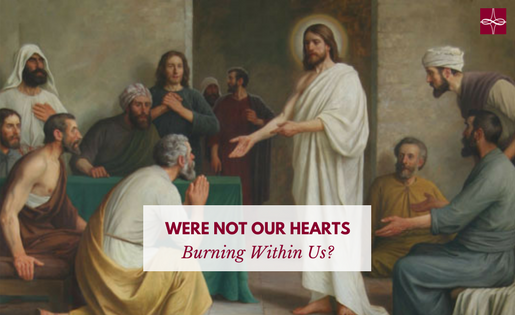



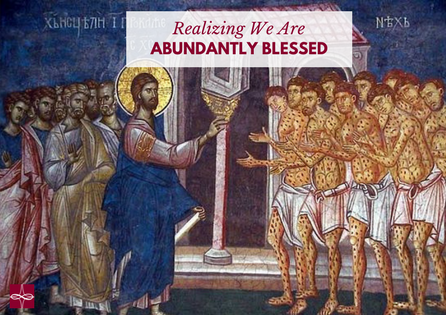

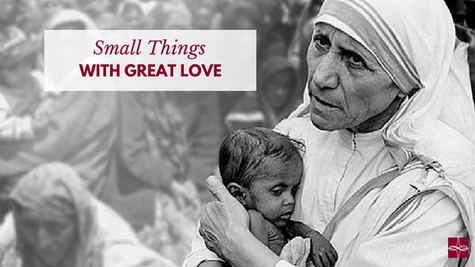

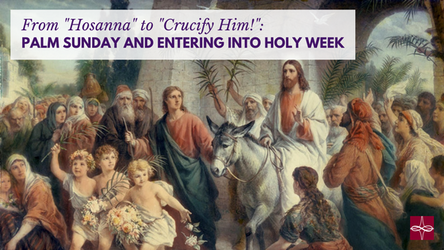

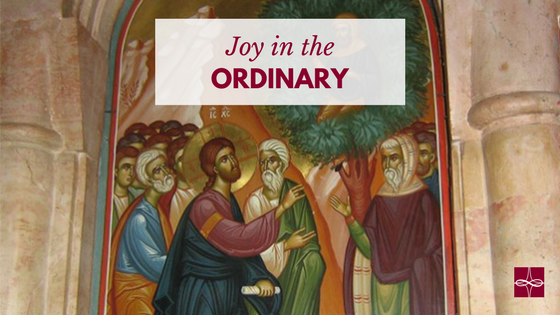

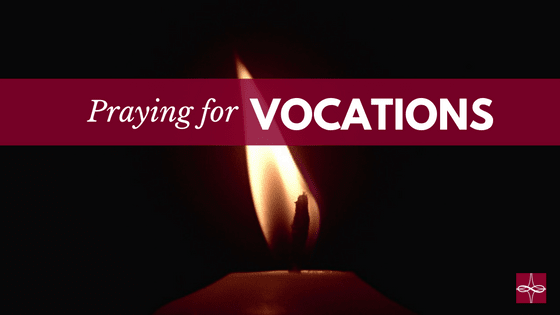

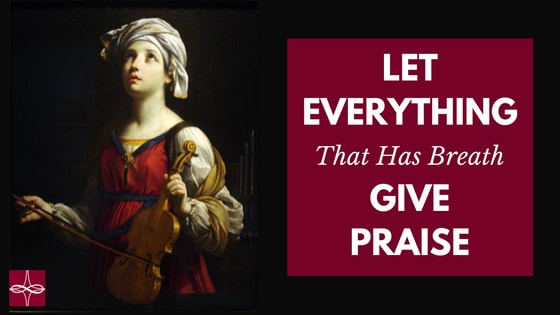

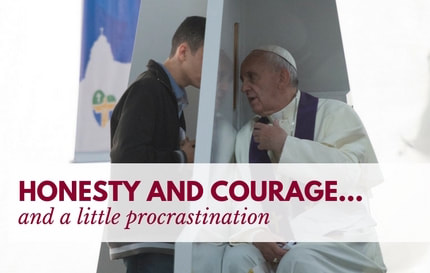


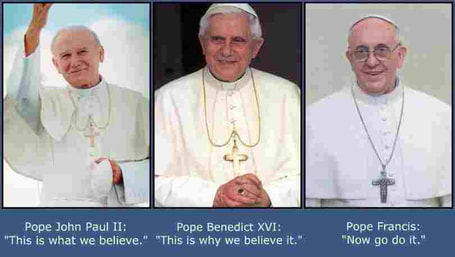

 RSS Feed
RSS Feed